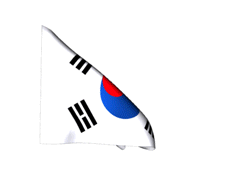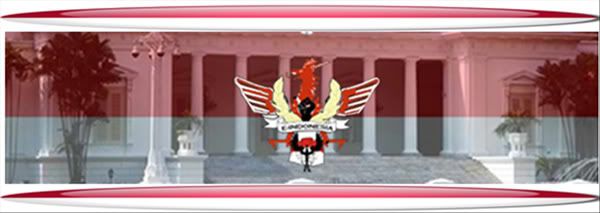[eSOUTH KOREA]HISTORY OF HARMONY COUNTRY eSOUTH KOREA (역사)
 •
by
•
by Eraclev
like a Rain
Like a Snow
Together in Sky..


Nothing is impossible in this world
If you have hope and encouragement
You'll be able to achieve and get everything you want
And when you lose hope
Look at the vast sky
There you will find hope
With a full LOVE AND SPIRIT of change

HAIL eSOUTH KOREA
Assalamualaikum Wr. Wb.
Greeting Prosperity to all People around the world
OPENING
South Korea (Hangul: 남한, Hanja: 南韓, lit. "Southern Han [State]") (Hangul: 대한민국, Hanja: 大韓民國, lit. "The great country of Han people") is an independent nation in Eastern Asia.
South Korea is in East Asia and comprises of the territories that traditionally make up most of the southern half of the Korean Peninsula. The capital region is Chungcheongbuk-do. (Gyeonggi-do prior to the Second Japan-South Korea War). South Korea shares natural borders with China, Russia, North Korea, Japan and Republic of China (Taiwan).
The following are regions of South Korea: The original territory of South Korea is composed of several regions: Chungcheongnam-do, Gangwon-do, Gyeonggi-do, Gyeongsangnam-do, Jeollabuk-do (occupied by

President: Ernesto Jeon
Vice President: isforever
Minister of Foreign Affairs(MoFA): theirina
Governer(MoF): Sangchi Choi
Minister of Defence(MoD): mahyun
Minister of Education(MoE): Dokabi
HISTORY OF THE HARMONY COUNTRY eSOUTH KOREA

A. The First Republic
Not much is known of South Korea's history before the Japan-South Korea War in May 2008 that resulted in the annexation of South Korea into Japan. In November 2008, ATLANTIS-backed freedom fighters alongside richie450 and his efforts launched three successful resistance wars in Gyeonggi-do, Gyeongsangnam-do, and Chungcheongnam-do, putting the country back on the map; if South Korea were to have a Founding Father, richie could certainly be considered.
B. The Early Days
In mid December The Party arrived in South Korea, led by the Triumvirate of Father (Peregrine), Teacher (ThisGenMedia), and Watcher (Trisk). They kept to themselves and spoke little, only saying they wanted to make Korea "better". With a growing population, South Koreans fought off The Party in the December Congressional elections, but in the end, The Party took over Congress, and then, the Presidency.
The Party ran South Korea in classic PTO fashion. They owned several companies which produced plenty of stock and enabled them to manipulate the economy. Their forums were never public, and they proved themselves inaccessible to citizens. Richie450, among others, abandoned his position in Congress and left the country. The Party lost its hold on the nation in the January congressional elections by Parrot due to the support of the Central Intelligence Agency. The CIA's intervention is rumored to have been due to personal grudges of the then American government against the Triumvirate.
C. The Parrot and DeBoyle Administrations
With Parrot winning the February 2009 presidential election, The Party was ultimately defeated. Though he was saddled with a weak economy, low production, and a small and starving population, Parrot rallied the community and, with the help of Japanese and private donations, was able to stave of starvation and refill the treasury. His actions spawned the first immigration wave to South Korea, where new companies were built, wages were competitive, cost were low, and the economy was strengthening.
Unfortunately, Parrot could not end the bickering with remnants of The Party and his heavy-handed response to criticism started to draw many comparisons to the autocratic system his administration replaced. In March 2009, in the first free elections in the country's history, he was defeated by one vote by Francis DeBoyle, who promised greater visibility, more freedom and continued economic growth.

D. The Goonrush and PowerSweden
During the melee, China sought to seize on the confusion by invading South Korea. During their small window of 'power' the goons were able to scrape the gold for an MPP from amongst their ranks but too late to stop the fall of Seoul. With the rightful return of PowerSweden, however, the tables turned and with the help of eTurks, eThais and a powerful effort from PowerSweden himself, South Korea was able to fend off the Chinese attack on Chungcheongnam-do and eventually expel them from the peninsula in the following liberation of Seoul (see China-South Korea War).
With the Goon plot to ascend to the presidency defeated and the Chinese pushed out of the country, PowerSweden decided to retire by way of self-imposed impeachment, leaving the presidency in the hands of Yonai Keiko.
E. The May 2009 Presidential Election
In her time as interim president, Yonai oversaw success across the board, in economic, diplomatic, population, and social matters, and she parlayed this into a win in the May 2009 election. Still burdened with a relatively small population, however, political leaders realized the nation's vulnerability to PTO's.
The cracks had, however, begun to appear.
Party leaders acknowledged the need for unity when threatened by foreign PTO groups. Leading up to the election, they had agreed to nominate one candidate, who would then for an administration using leading members from all parties. This was seen as a short-term solution, and with population bound to grow, this was planned as a temporary anti-PTO measure, not permanent policy. A few days before the election, however, LordSlowPoke, leader of the Workers' Party, broke the agreement by nominating Aarons-Miller for President. Yonai won the election, but the idea of unity for the sake of thwarting PTO attempts was destroyed. Sure enough, PTO groups from Poland and the United States of America soon came, and with every new PTO attempt, national morale waned.
F. The JASKO Union
With the never-ending waves of PTO mercenaries coming in, with parties unable to broker deals to assure unity, and in an era before the citizenship module, national leaders from the center and right, unable to trust leftist leaders like those in the Workers' Party, began to seek other options. As it stood, the choice was to either allow one PTO group after another take over the government, or to merge with Japan, a country with a democratic tradition and a population large enough to not have to worry about constant PTO's.
A postal vote was held, and by two-thirds majority, South Koreans decided to stop being at the mercy of PTO malice and to join Japan.
With Japan's consent, South Korea declared war on them, and the process of merging began. By the time the June 2009 Congressional elections came around, the process was complete; South Korea was part of Japan. The South Korean community assimilated into Japanese culture and seemed content with the move.
G. Return to Democracy
In January 2010, after five months in power, the Theocrats announced they were leaving South Korea. With a lack of battles in the region and a distaste for governance, leadership directed members and resources to Spain and worked with the South Koreans to transfer power as smoothly as possible. To their credit, their departure was much more diplomatic, much more affable, than was their arrival. By the January Congressional elections, the Theocratic Era was over.
The post-Theocratic era was greeted by the community with enthusiasm and eagerness to rebuild. Facing many of the problems which had always plagued South Korea (weak currency, a turbulent economy, predators and PTO groups looking to take their share of the country), those who stayed were committed to a return to a free-market, democratic society. The newspaper media sprang to life, the national forum buzzed with activity, and positivity replaced the pessimism seen in Theocratic South Korea. The KRW quickly strengthened from 112 KRW/gold to 65 KRW/gold, the food and grain industries were slowly rebuilt, the South Korean Guard and Crimson Tigers were created to fill the military vacuum created when the Theocrats left, the population rose from just over 300 in mid-January to 650 by March, and an MPP was signed with Malaysia for the sake of wargames. The political parties that were vacated by the Theocrats were soon put to use.
After waiting five months, Spade's dream came true as he won the February Presidential election over Andrei Vissarionovich by a single vote. His leadership through this transition garnered him wide support, and in March he ran for re-election unopposed.

CLOSING
Hail eIndonesia
Hail eSouth Korea

Signed,
Demon War
Be active, reliable and independent Newbe.
eSouth Korea require new seeds like you.
Enthusiastic, confident and conscious of the importance of community as well as intelligent and creative personal

WE ARE STILL HERE !!
STRUGGLE WITHOUT LIMITS


Comments
pole¡¡¡
THE HARMONY COUNTRY eSOUTH KOREA ????
We are speaking about the same country?
Have no fear, I stay here ! o7 Hail eSouth Korea
마눌아 제발 조화를 깨는건 너니까 제발 나가줘..